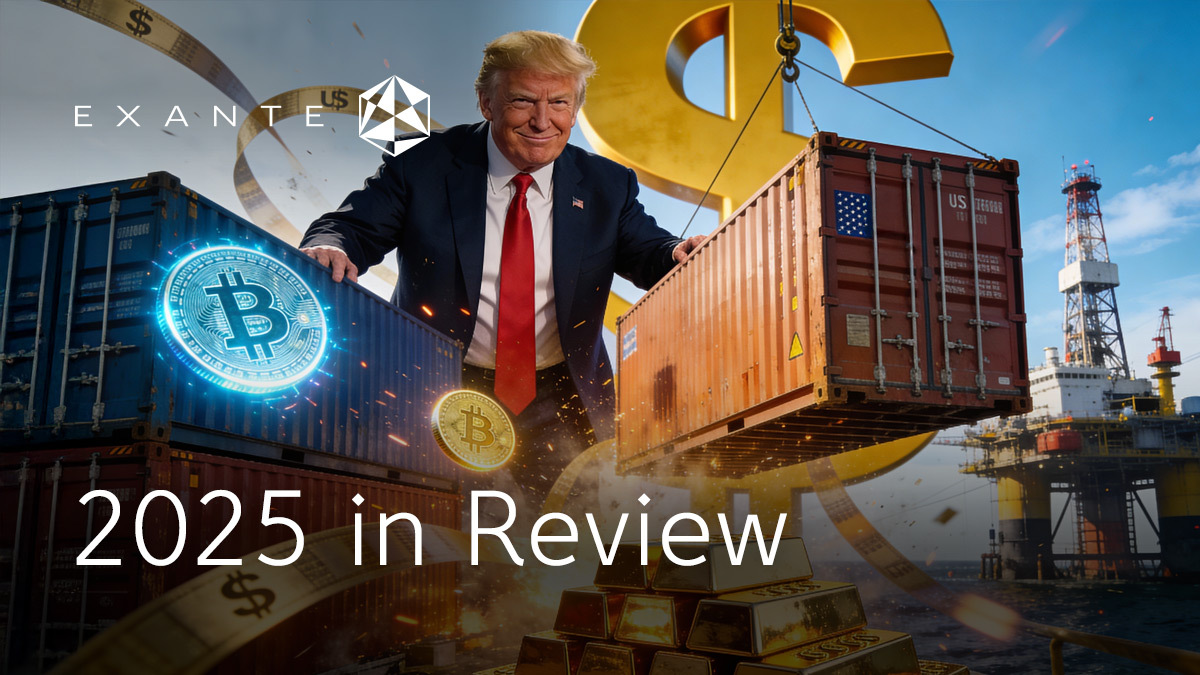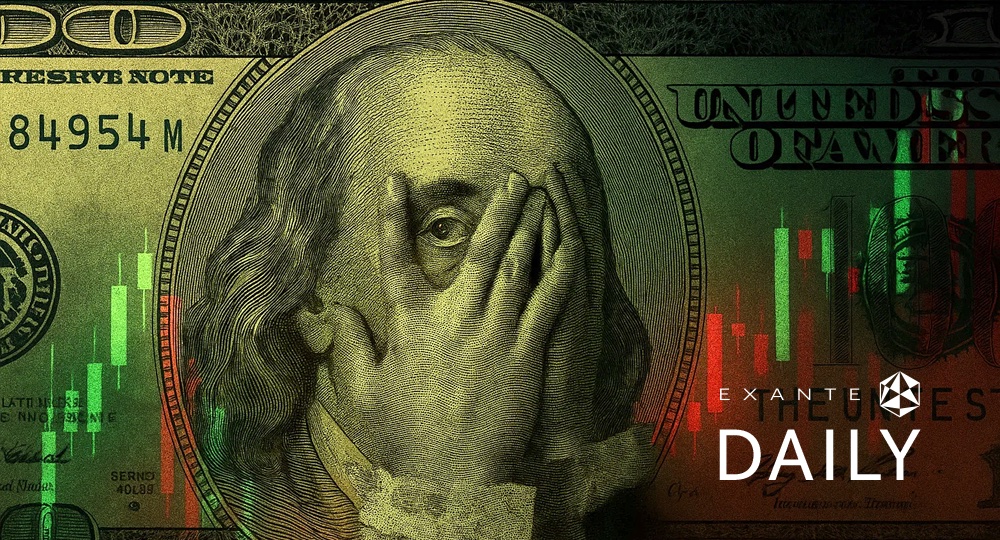
EXANTE Monthly Macro Insights

- EU inflation highs
- Reading Fed tea leaves
- A dead cat bounce in equities
- Is OPEC changing its mind over Russia?

Global Markets in May
US:
S&P 500 was up 0.01% MTD and down 13.3% YTD
Nasdaq was down 2.06% MTD and 22.8% YTD
Dow Jones was up 0.71% MTD and down 8.6% YTD
NYSE Composite was up 1.26% MTD and down 7.79% YTD
Europe:
Euronext 100 was down 0.28% MTD and 8.76% YTD
Stoxx 600 was down 1.56 % MTD and 9.11% YTD
DAX was up 2.06% MTD, but down 9.42% YTD
CAC40 was down 0.99% MTD and 9.57% YTD
IBEX35 was up 3.11% MTD and up 1.58% YTD
FTSE MIB was up 1.04% MTD and10.39% YTD
FTSE 100 was up 0.84% MTD and 2.92% YTD
Global:
MSCI World Index was up 0.49% MTD and down 12.98% YTD.
Hang Seng was down 1.54% MTD and 8.47% YTD
Hitting the wrong highnote. Eurozone inflation hit 8.1% for April, more than 4 times the ECB target rate. The prospect of rate hikes to get to “neutral” helped the Euro recover some ground in May and Eurozone bond yields continue to rise following the bloc's inflation data.
What’s the tea about the Fed? As part of its plan to curb inflation, the Fed officially started shrinking its $8.9 trillion balance sheet on 1 June, although the first Treasury securities won’t run off until $15 billion mature on 15 June. Rate rises of 50 bps have been priced in for June and July. Markets are closely watching speeches by individual FOMC members to get a steer on what may happen from September onwards, as minutes of the previous meeting indicated that policy may have to move past a “neutral” stance.
A temporary reprieve. The May bounce in global stock markets was largely driven by hopes that the Federal Reserve may pause its promised rate hikes in September as it re-evaluates continuing geopolitical uncertainties, i.e. the ongoing events in Ukraine, whether OPEC will kick Russia out and be willing to increase production, other inflationary factors such as a tight labour market and food price inflation.
OPEC minus? EU leaders have agreed to embargo Russian crude oil imports via tankers that will take full effect by end-2022. This aims to halt 90% of Russia's crude imports. However, as Hungary, Slovakia and the Czech Republic all get their Russian oil from the pipeline Druzhba they will be exempted from the embargo. Meanwhile, the Wall Street Journal reported that the OPEC+ alliance has been discussing removal of Russia from its oil-production agreements, although this was later denied by OPEC members.
If this were true, it would massively impact global oil supply as Russia, along with Saudi Arabia and the US, is one of the world’s top three crude producers. If Russia is kicked out of the quota supply system it would give other members scope to pump more. Meanwhile Gazprom has cut off supplies to Orsted and Shell citing the companies' failure to make payments in roubles.
Key events in June
9 June: ECB Monetary policy meeting. Although ECB President Lagarde and other policy makers have suggested that a 25bps rise is most likely in July, yet others are suggesting a 50 bps rise may be more appropriate to tackle inflation. However, the economy seems to be showing some early signs of slowing: May’s manufacturing PMI fell to 54.6l from April’s 55.5, as factories continued to face supply shortages and rising input prices.
There also seems to be a fall in demand as consumers switched their focus from goods to services, as the New Orders PMI fell to 48.7 in May from 51.6, its first time below the breakeven 50 mark since June 2020.
14-15 June: Federal Reserve Monetary Policy meeting. Markets have priced in a 50 bps rise but, given the continuing tightness of the labour market, rising petrol and food prices, and strong demand growth for goods (Manufacturing PMI was at 56.1 in May from 55.4 in April) they may even go higher despite consumer confidence starting to fall (to 106.4 in May from April’s 108.6) thereby showing a potential for dampening demand.
16 June: Bank of England Monetary Policy meeting. The BoE is between a rock and hard place as inflation hit 9% in April and is expected to go well over 10% this year as the economy slows, e.g., Manufacturing PMI fell to 54.6 in May from 54.6 in April, the weakest rate since January 2021. Consumer demand is falling in the face of a cost of living crisis which has led to Finance minister Rishi Sunak announcing £15 billion of aid for households.
26-28 June: G7 Summit. Hosted by this year’s G7 President, Germany, the summit will take place in Schloss Elmau in the Bavarian Alps. Expect talk about further sanctions against Russia, tackling the global climate and biodiversity crises and promoting a sustainable and just energy transition. Senegal, South Africa, India and Indonesia have been invited as guest countries to attend the summit.
29-30 June: NATO summit. It is expected that at this summit in Madrid, member nations will seek to adopt the new 2022 Strategic Concept, as well as discussing potential additional funding, and debating prospects for Georgia’s future membership of the Alliance. Key themes will include building resilience, harnessing technology, and assessing the impact climate change will have on the security environment.
DISCLAIMER: While every effort has been made to verify the accuracy of this information, EXT Ltd. (hereafter known as “EXANTE”) cannot accept any responsibility or liability for reliance by any person on this publication or any of the information, opinions, or conclusions contained in this publication. The findings and views expressed in this publication do not necessarily reflect the views of EXANTE. Any action taken upon the information contained in this publication is strictly at your own risk. EXANTE will not be liable for any loss or damage in connection with this publication.
本文提供给您仅供信息参考之用,不应被视为认购或销售此处提及任何投资或相关服务的优惠招揽或游说。金融工具交易存在重大亏损风险,未必适合所有投资者。过往表现并非未来业绩的可靠指标。




